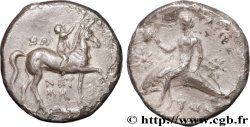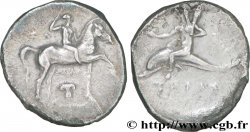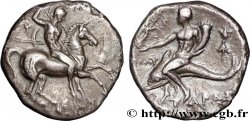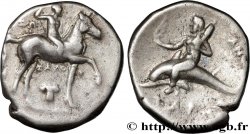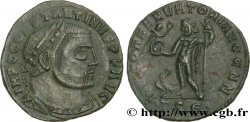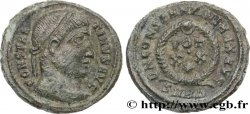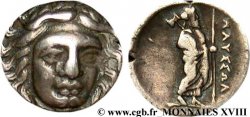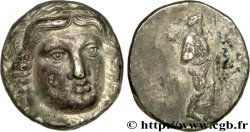v59_0001 - CALABRIA - TARAS Nomos ou didrachme
MONNAIES 59 (2013)
Starting price : 380.00 €
Estimate : 550.00 €
unsold lot
Starting price : 380.00 €
Estimate : 550.00 €
unsold lot
Type : Nomos ou didrachme
Date: c. 275 AC.
Mint name / Town : Tarente, Calabre
Metal : silver
Diameter : 19 mm
Orientation dies : 9 h.
Weight : 6,25 g.
Coments on the condition:
Exemplaire sur un petit flan ovale, bien centré des deux côtés. Droit élégant bien venu à la frappe. Revers de style fin, mais de frappe un peu molle. Très jolie patine de collection ancienne avec des reflets mordorés et bleutés
Catalogue references :
Predigree :
Cet exemplaire provient de la vente Weil du 2 juin 1996, n° 277
Obverse
Obverse description : Cavalier nu passant à droite, se couronnant lui-même ; entre les jambes du cheval, le chapiteau d’une colonne ionique.
Obverse legend : IW/ IALO
Reverse
Reverse description : Taras nu, chevauchant un dauphin à gauche, tenant un aplustre de la main droite et une quenouille de la main gauche.
Reverse legend : TARAS/ ANQ
Reverse translation : (Tarente).
Commentary
C’est l’un des nomos les plus courants pour le monnayage de Tarente pour cette période. L’aplustre que tient Taras au revers est un symbole maritime. En revanche, la présence de la quenouille reste plus énigmatique et fait peut-être référence à l’une des nombreuses activités de la cité.
It is one of the most common nomos for Taranto coinage for this period. The apluster held by Taras on the reverse is a maritime symbol. On the other hand, the presence of the distaff remains more enigmatic and perhaps refers to one of the many activities of the city
It is one of the most common nomos for Taranto coinage for this period. The apluster held by Taras on the reverse is a maritime symbol. On the other hand, the presence of the distaff remains more enigmatic and perhaps refers to one of the many activities of the city







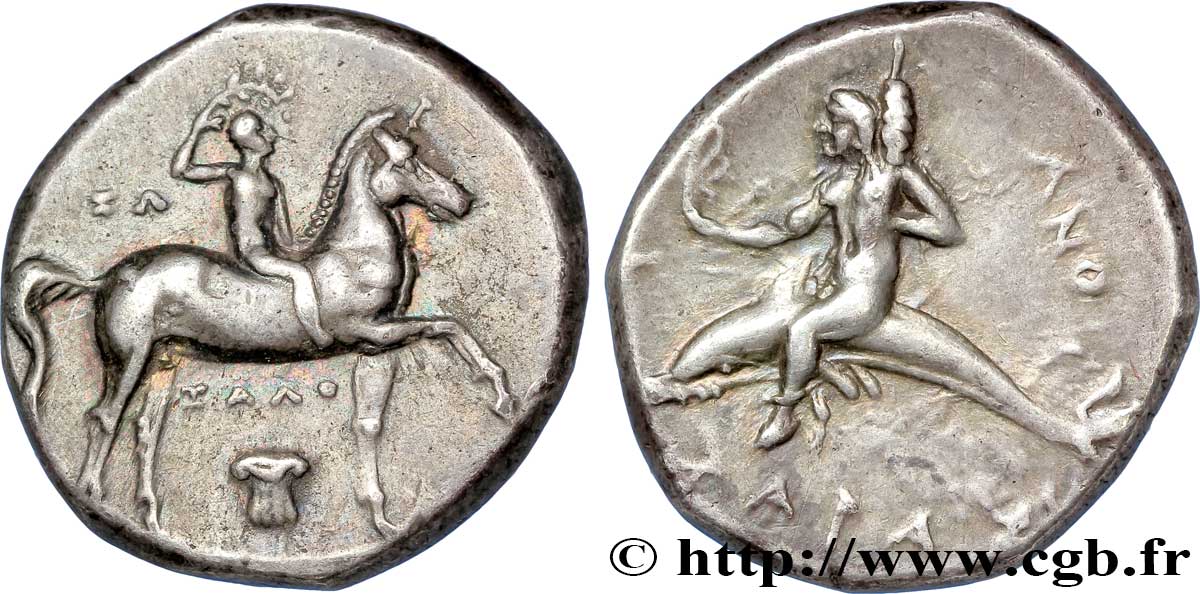
 Report a mistake
Report a mistake Print the page
Print the page Share my selection
Share my selection Ask a question
Ask a question Consign / sell
Consign / sell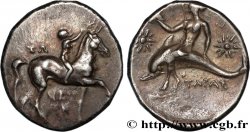
 Full data
Full data